DEVELOPMENT AND SKILLS TRAINING A Business Strategy to Increase Company Performance

CONTENT 01 Introduction to Employee Development in the Feedmill Industry 02 Importance of Cost Reduction Skills 03 Employee Loyalty and Retention: Strategies for Success 04 Adapting to Technological Changes 05 Conclusion 06 Recommended next step
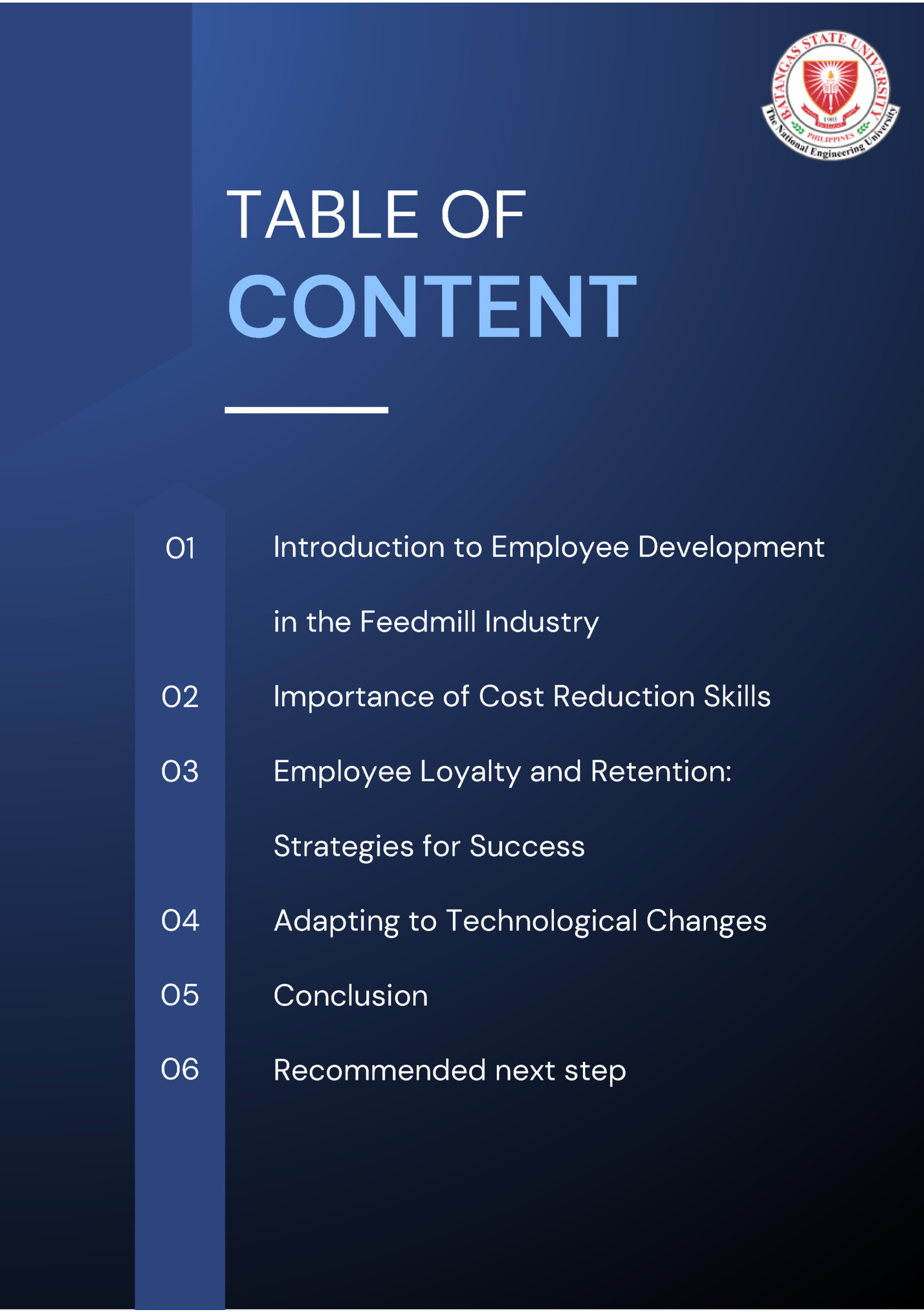
EMPLOYEE DEVELOPMENT IN THE FEED MILL INDUSTRY The feed mill industry forms part of the agricultural sector but offers high-quality feed for animal nutrition. This requires a highly skilled workforce for the continuous development and upgrading of this innovative industry. Some critical focus areas for skill enhancement have been identified as that which would contribute to the feed mill industry employees' loyalty, reduce costs, and be responsive to changes in technological innovations. Therefore, an improved skill set in these areas will prove beneficial to the feed mill industries for a long-term operational efficiency boost while also contributing to an effectively motivated and working workforce.
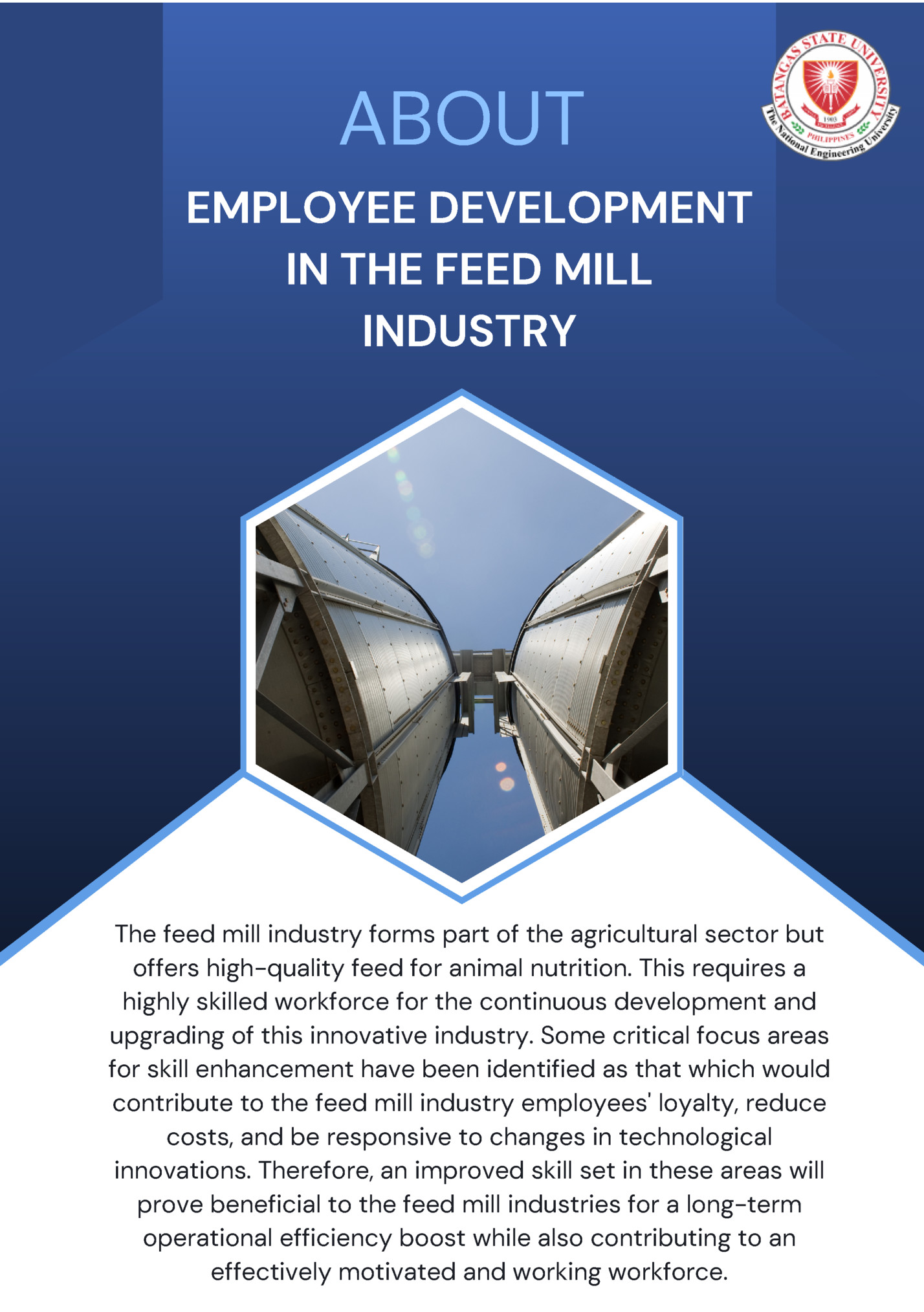
COST REDUCTION SKILLS The present scenario in the milling industry is highly competitive. Therefore, there is a need for operational costs that enhance the sustainability of businesses under very competitive market conditions. This calls for training employees at all levels on costsaving techniques focusing mainly on the reduction of wastage, efficient use of resources, and productivity improvement.
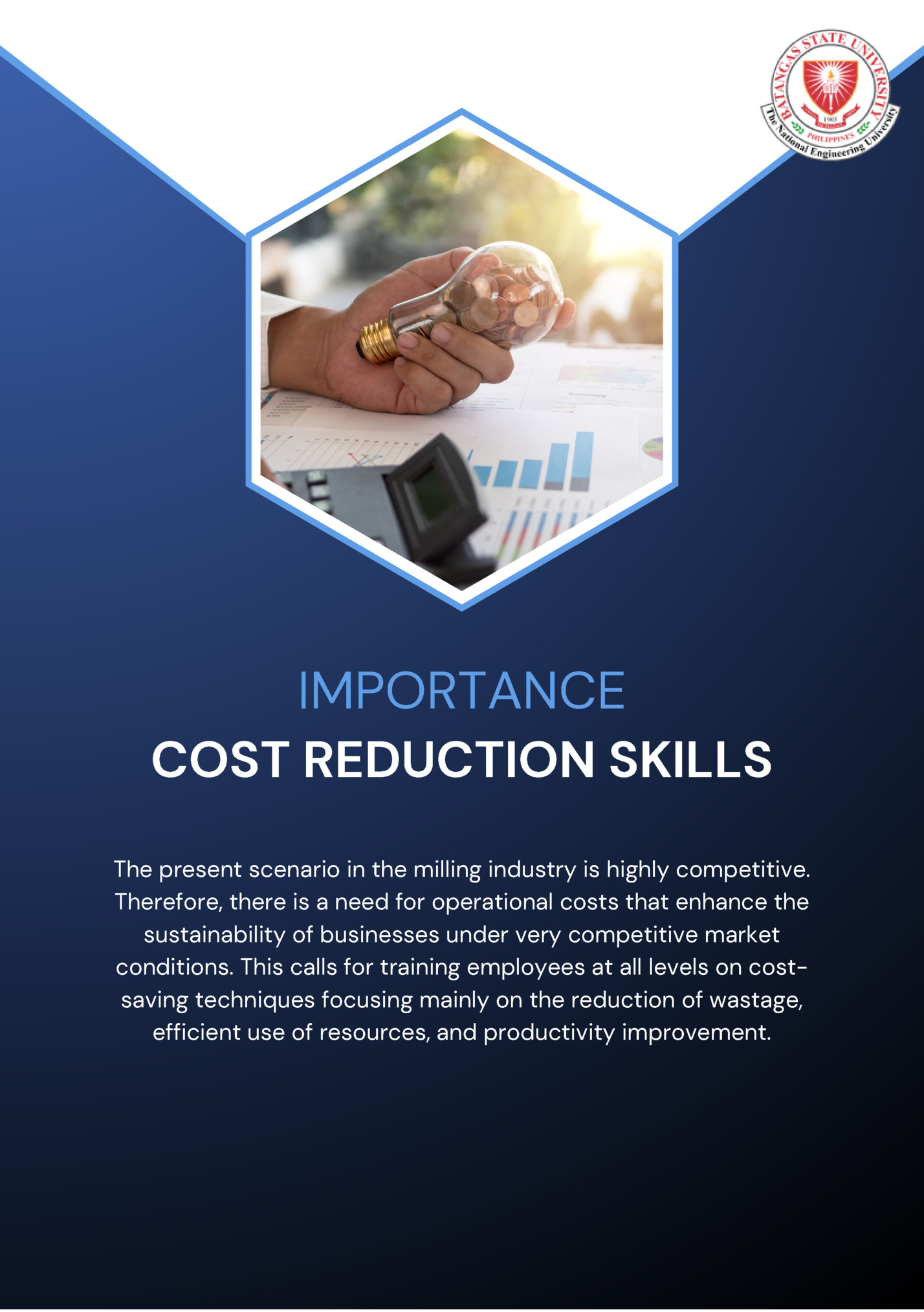
REDUCTION SKILLS Efficient Resource Management The workers should be trained not to waste raw materials, machines, and tools, and however much labor might be consumed. Lean manufacturing and similar techniques can be applied to make the whole process efficient and reduce costs. Energy Efficiency Employee training in energy efficiency can encompass activities such as tracking energy consumption and pinpointing areas for improvement, among others. This can significantly reduce costs. Preventive Maintenance Scheduled maintenance of equipment saves time and costly repairs, thus enhancing productivity and preventing interruptions in operations. Supply Chain Optimization Workers need to apply supply chain management strategies in order to reduce procurement expenses. Some of the strategies include negotiating with suppliers, improving logistics systems, and reducing inventory waste so that the total supplies costs can be lowered.
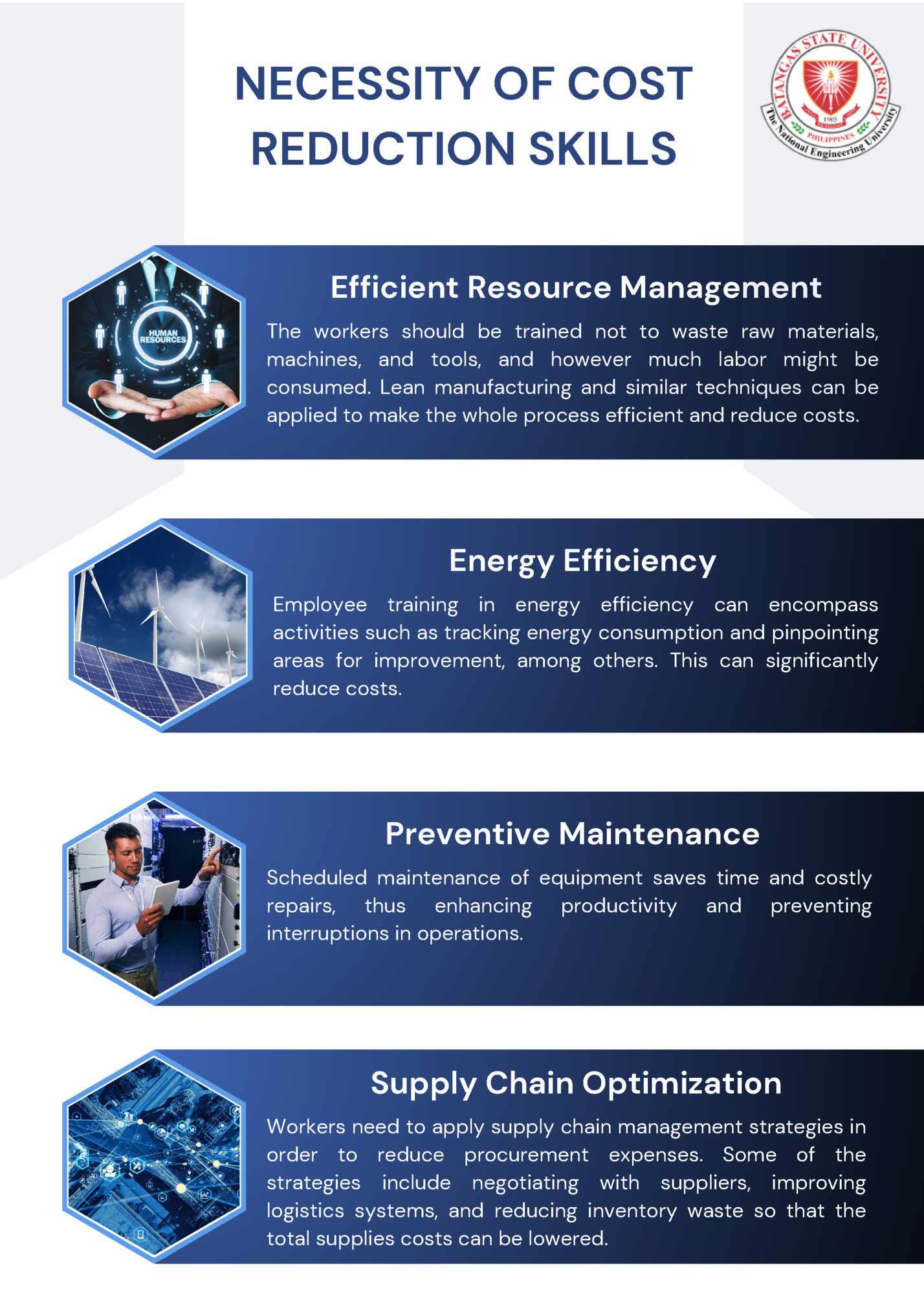
OBJECTIVE At the end of the training, employees should realize that there is a need for cost reduction and what role each one of them plays in optimizing operational expenses. It should give them practical tools to implement cost-saving measures effectively.
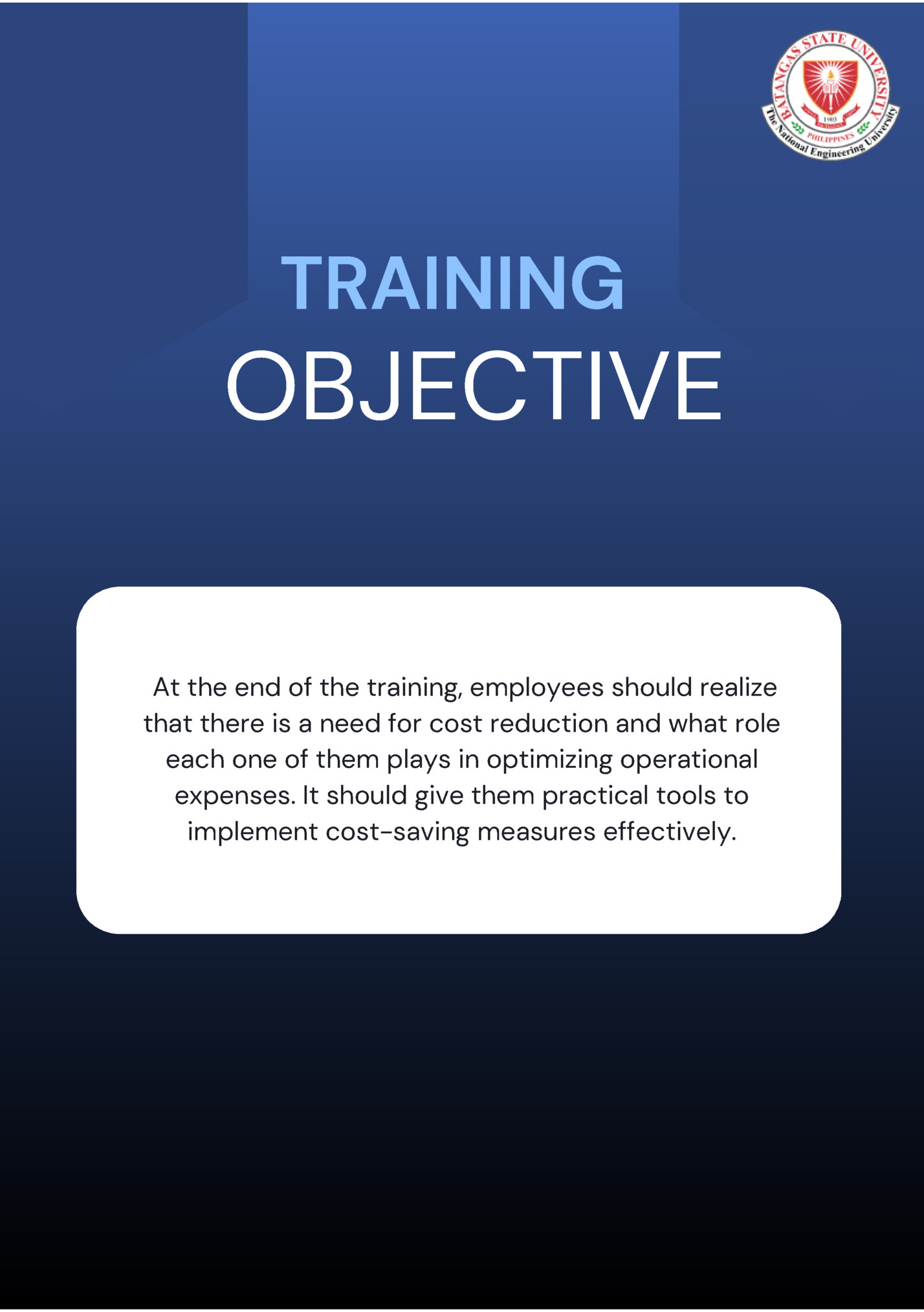
EMPLOYEE LOYALTY AND RETENTION Loyalty among employees is one of the major reasons why a company can maintain its workforce, reduce turnover, and enhance the performance of a firm as overall. This is an important advantage for industries such as feed mills that require specific expertise because it fosters a sense of commitment and involvement among workers.
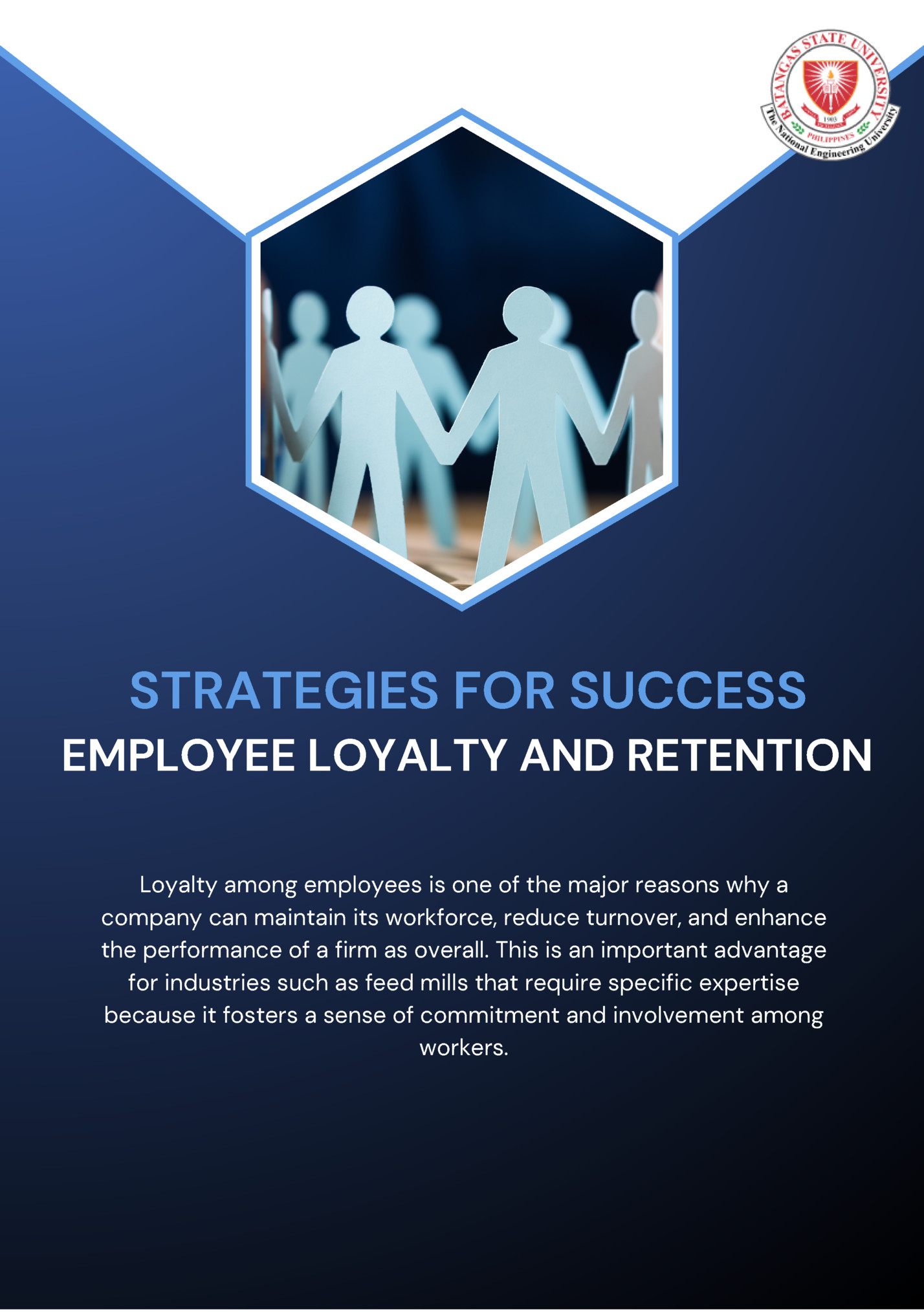
AND RETENTION Clear Communication To enhance trust and transparency between employees and the management, a communication channel has to be established. Employees appreciate feedback and regular updates on the company objectives. Recognition and Reward Programs That recognition programs or just simple praises to the employees for jobs, well done, enhances employee morale and loyalty. Reward systems based on performance are good strategies for retention through bonuses and promotions. Opportunities for Career Growth This may help in curbing turnover. Employees who are engaged in the business of the company are less likely to leave the business. Work-Life Balance Initiatives Flexible working hours, health and wellness programs, and vacations ensure that employees maintain a healthy work-life balance and reduce the incidence of burnout and increase loyalty in the long term.
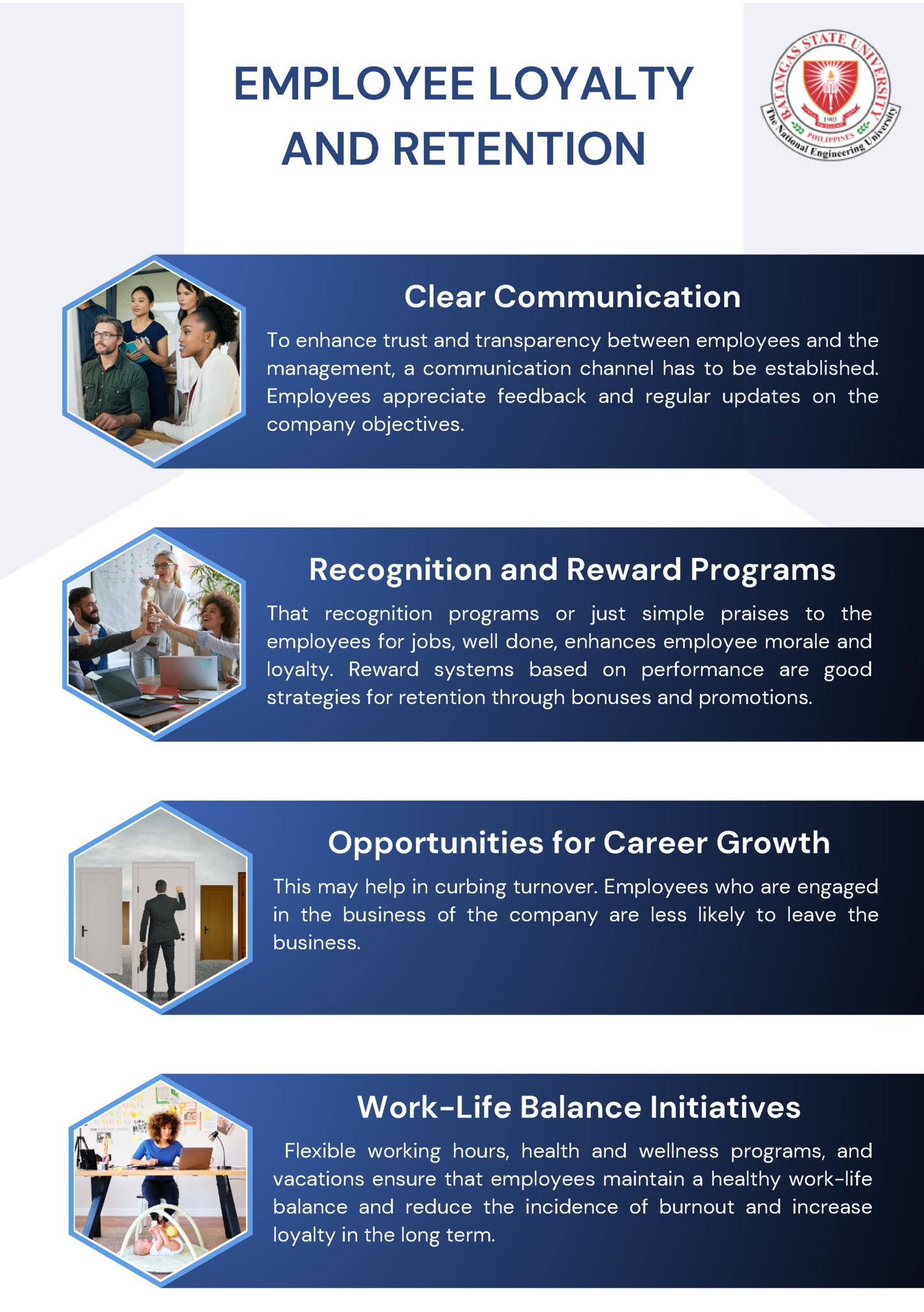
OBJECTIVE This part of training will enable employees to comprehend the importance of loyalty and engagement of a company. They would learn practical ways to bring a positive work environment, help build strong relationships with others, and align their personal career objectives with the company's objectives.
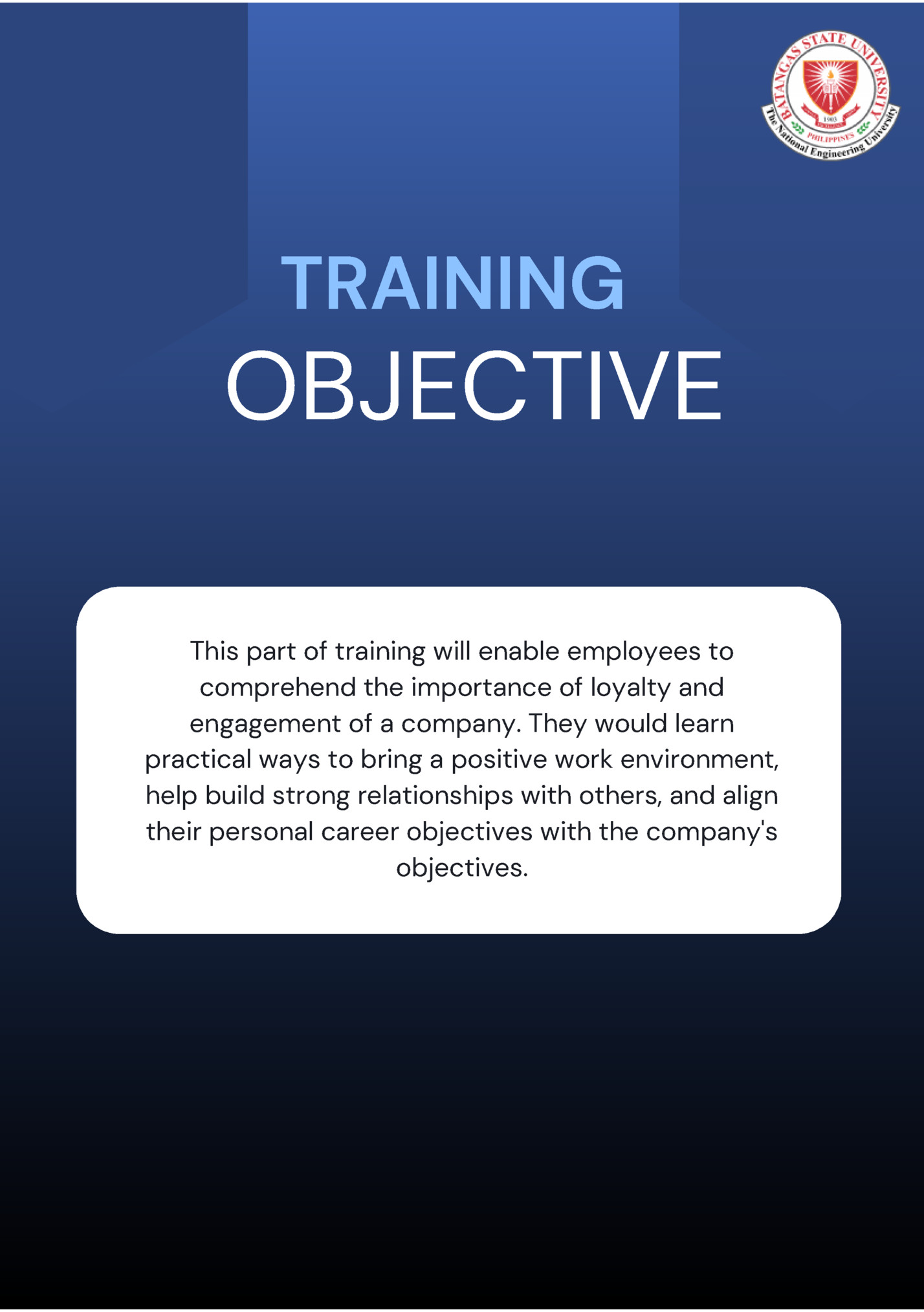
Fleepit Digital © 2021